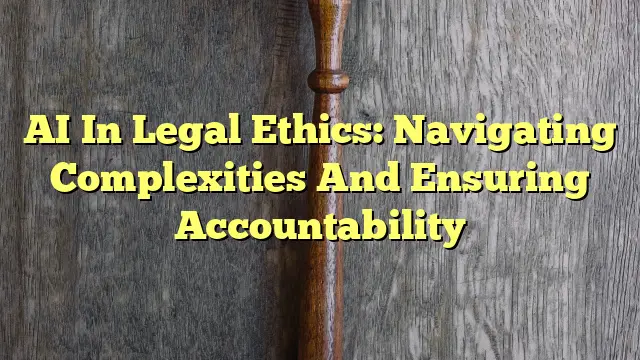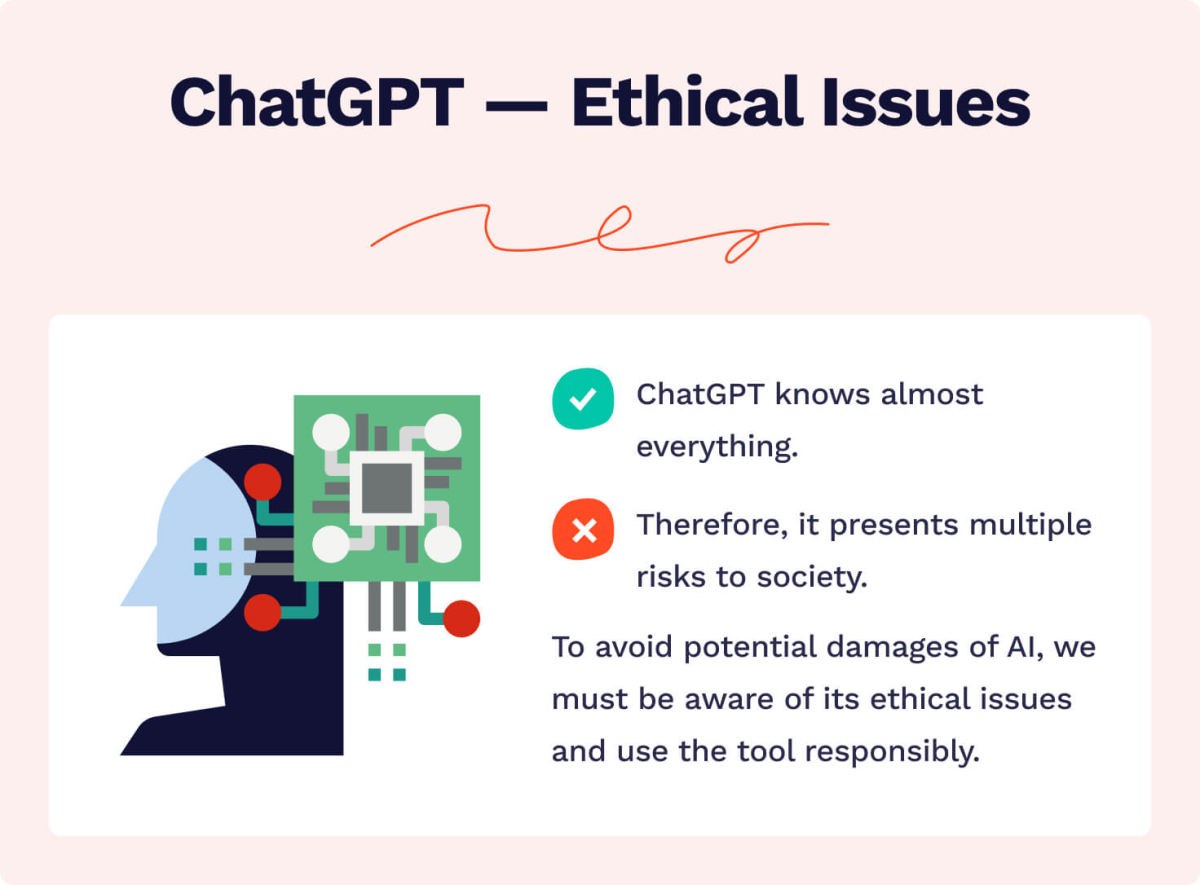The Ethics of ChatGPT: Navigating the Complexities of AI Conversations

The Emergence of Conversational AI

ChatGPT, a state-of-the-art conversational AI system, has sparked discussions about the ethical implications of AI-powered interactions. Its ability to engage in human-like conversations raises questions about the responsibilities of AI developers, users, and society at large.

Potential Benefits and Challenges
ChatGPT has numerous potential benefits, including:
- Improved access to information: ChatGPT can provide quick and efficient access to a vast repository of knowledge.
- Enhanced communication: ChatGPT can facilitate communication between people with different languages or disabilities.
- Personalized content: ChatGPT can tailor its responses to individual interests and preferences.
However, there are also ethical concerns associated with ChatGPT:
- Bias and discrimination: Without careful oversight, ChatGPT could amplify existing societal biases and discriminate against certain groups.
- Privacy and data security: ChatGPT processes large amounts of textual data, raising concerns about the privacy of user conversations.
- Authenticity and trust: It can be difficult for users to distinguish between human and AI-generated responses, potentially eroding trust in online interactions.
Addressing the Ethical Concerns
To mitigate the ethical concerns raised by ChatGPT, several measures are necessary:
- Transparency and disclosure: AI developers should be transparent about the nature and capabilities of their systems.
- Ethical guidelines: Governments and organizations should develop ethical guidelines for the use of conversational AI, including principles of fairness, privacy, and consent.
- User education: Users should be educated about the limitations and biases of conversational AI systems and how to use them responsibly.
- Regulation and oversight: Regulatory bodies should monitor and enforce ethical standards for conversational AI development and usage.
Conclusion
As conversational AI systems like ChatGPT become more advanced, it is crucial to consider the ethical implications and develop appropriate safeguards. By addressing the potential challenges and leveraging the benefits, society can harness the transformative power of AI while ensuring that it aligns with ethical principles and contributes to a responsible and inclusive digital future.## The Ethics Of Chatgpt: Navigating The Complexities Of Ai Conversations
Executive Summary
ChatGPT has gained widespread recognition for its remarkable language modeling capabilities. However, as with any transformative technology, ethical considerations must be carefully assessed to ensure its responsible development and deployment. This article explores the ethical implications surrounding ChatGPT, highlighting key subtopics and providing guidance for navigating the complexities of AI conversations.
Introduction
The advent of ChatGPT has revolutionized human interaction with machines. Its ability to interpret natural language, generate coherent text, and assist in various communication scenarios raises important ethical questions regarding its impact on society. This article delves into the ethical dilemmas associated with ChatGPT, considering its potential benefits and risks.
FAQ
FAQ 1: What ethical concerns arise with the use of ChatGPT?
ChatGPT raises ethical concerns centered around its potential for bias, misinformation, privacy violations, and its impact on human communication.
FAQ 2: How can we minimize ethical risks associated with ChatGPT?
Mitigating ethical risks requires transparency, accountability, and establishing clear ethical guidelines for its development and deployment.
FAQ 3: What role do individuals have in ensuring the ethical use of ChatGPT?
Individuals play a crucial role by critically evaluating information generated by ChatGPT, reporting bias or harmful content, and advocating for responsible AI practices.
Subtopics
1. Bias and Fairness
- ChatGPT has the potential to perpetuate existing biases present in the training data.
- Ensuring fairness requires evaluating and mitigating potential biases to prevent discriminatory outcomes.
- Addressing bias involves identifying and addressing sources of bias, deploying bias-mitigation techniques, and promoting inclusive data practices.
2. Misinformation and Truthfulness
- ChatGPT can inadvertently generate inaccurate or misleading information.
- Establishing mechanisms for detecting and flagging false or misleading information is vital.
- Promoting critical thinking and media literacy helps users evaluate the credibility of ChatGPT-generated content.
3. Privacy and Data Security
- ChatGPT requires large amounts of data for training, which raises concerns about privacy and data security.
- Implementing robust data protection measures, obtaining informed user consent, and respecting privacy rights are essential.
- Users should be aware of their data privacy rights and take steps to protect sensitive information.
4. Impact on Human Communication and Relationships
- ChatGPT can alter the nature of human communication by introducing a virtual conversational agent.
- It is crucial to consider the potential impact on interpersonal skills, social interactions, and the development of critical thinking abilities.
- Encouraging balanced and mindful use can foster its potential to enhance human communication while minimizing potential drawbacks.
5. Ethical Guidelines and Regulation
- Developing and enforcing clear ethical guidelines for the development and deployment of ChatGPT is crucial.
- Regulatory frameworks may be necessary to ensure responsible AI practices and protect against potential misuse.
- Collaboration between stakeholders, including ChatGPT developers, policymakers, and users, is essential to shape ethical AI regulations.
Conclusion
ChatGPT presents a powerful tool that also comes with a unique set of ethical implications. By addressing concerns around bias, misinformation, privacy, human communication, and ethical guidelines, we can navigate the complexities of AI conversations and harness ChatGPT’s potential for responsible and beneficial applications.
Keyword Tags
- ChatGPT
- AI Ethics
- Bias and Fairness
- Misinformation and Truthfulness
- Privacy and Data Security
- Human Communication
- Ethical Guidelines
